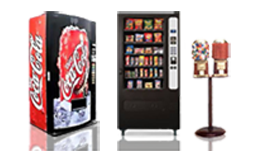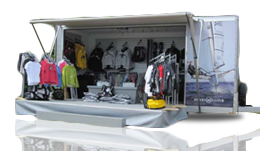What Can You Do When Your Semi Truck is Overheating?

If you’re a seasoned truck driver driving for the longest time of your life, then you’re already familiar with the warning signs of overheating. But here is what neophyte drivers should know. When your vehicle overheats, watch out for the signs like – a hood that’s warm to the touch as heat is being emitted; warning light flashing on the temperature gauge indicating excessive heat produced in the engine; an audible ticking noise coming from the engine; and coolant pooling under.
As well, a billowing steam from under the hood is another sign. Further, once you hear some kind of thumping noises, it implies that a valve has stuck, trapping the coolant in the engine block. If the overheated engine is not remedied, engine power is reduced and the engine gets into some kind of struggle. Anyways, you need not worry about overheating if your truck’s cooling system is in order. For sure, your vehicle wouldn’t be functioning normally if something were amiss with your cooling system.
What’s Inside
How to Handle Your Overheating Semi Truck: 4 Steps
Execute a “quick fix”
As soon as you see your temperature gauge going up significantly, turn the air conditioner off in the cab. Next, blow the heat up in your semi. Sounds counterintuitive yet the logic here according to experts, is that it could move the heat away from the engine. Wait for it to cool down.
Just a reminder – turning the heater on while the semi truck is in motion won’t help your engine to cool down but it does help prevent a disaster. Another way to minimize the heat inside is to open the windows. With closed windows, the hot air will just keep on flowing around which could worsen things inside.
Pull over
Now, if nothing is working after performing that “first aid”, time to pull over to a safe place. Turn your engine off and switch the hazard lights on. Once the engine has cooled, it is now safe to pop the hood up and take a good look under. Take note – never attempt to touch the hood if you know it is still scorching hot. To test the heat, use the back of your hand when touching the hood.
Do a thorough investigation
The first things you need to investigate are the hoses and the coolant itself. Watch out for the red flags. Do you have enough antifreeze in the coolant reservoir? If you don’t, then refill it using your reserved substance. Once topped off, run your truck again, keeping an eye on the temperature levels.
Likewise, check if your coolant hoses are not busted or leaking, otherwise trouble with your electrical or mechanical system might ensue. If a leakage has occurred, the coolant from the radiator or the engine cannot be transferred towards the water pump. Your 18-wheeler will then be at risk of damage.
Get professional help
At this time, if overheating still continues even when the coolant has been refilled, better think of calling for roadside help. And, if you think you cannot really fix the problem on your own, then, contacting a mobile mechanic would be a good idea. You can make an arrangement for the vehicle to be taken to the shop. Then again, if you see no major reason why your tractor-trailer is still overheating, it is now your call. You can either drive it home or to the nearest shop.
How to Avoid Overheating in the Future: 6 Tips
After one overheating incident, you will not want to experience another round again. Here’s what you can do to prevent overheating.
1. Just as your coolant comes to a low level, top it off immediately. Don’t wait for your coolant level to run low. Thus, it’s wise to keep an extra coolant. Keeping a bottle of antifreeze handy is one of the most convenient ways of fixing overheating problems. Always keep an eye on your fluid levels before departing.
2. Look out for the temperature gauge because an increasing temperature means your coolant system is going to require a re-assessment as well as other components of your truck.
3. After fixing your cooling system, do a brief test ride. This helps you determine what other issues your truck might be having. All along, another problem may have cropped up that’s why the overheating doesn’t subside.
4. Don’t overuse your truck’s air conditioning. Getting it overworked might break something and that can spell disaster, overheating issues included.
5. Maintain good flushing habits. If this practice is good for the bathroom, it does good to your vehicle, too. FYI, the radiator is part of your truck’s cooling system and as such, also needs proper maintenance. Radiator flushing is important to the well-being of semi trucks. Read your owner’s manual thoroughly to know how often you have to do the task.
6. You may have overlooked the coolant level and the temperature gauge but when the heat is up, roll down your windows quickly. Turn the heater on to let the heat escape. Doing these acts with presence of mind can stop a small problem before it gets bigger.
If some of your units have been severely damaged from overheating, you might need to look for replacements. Used Vending can help you find good semi trucks for sale with their widest selection. Click this link for helpful information.






